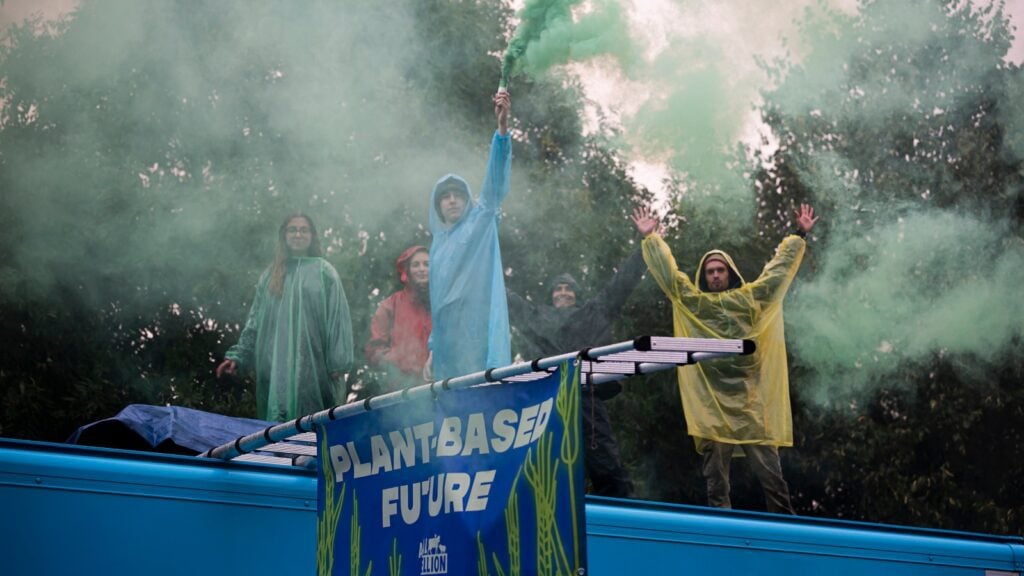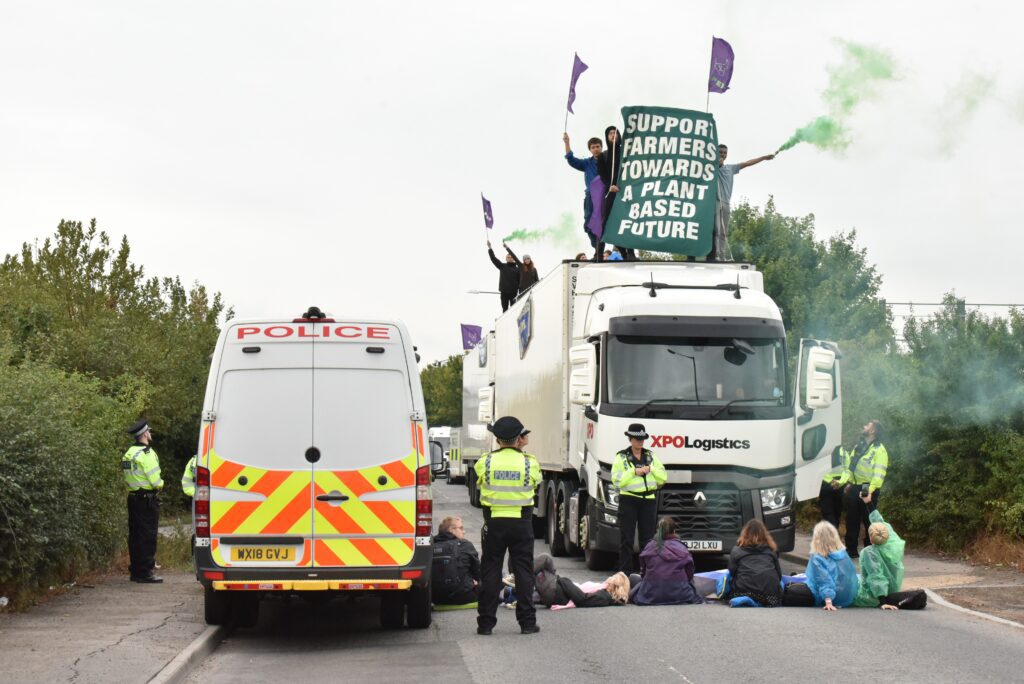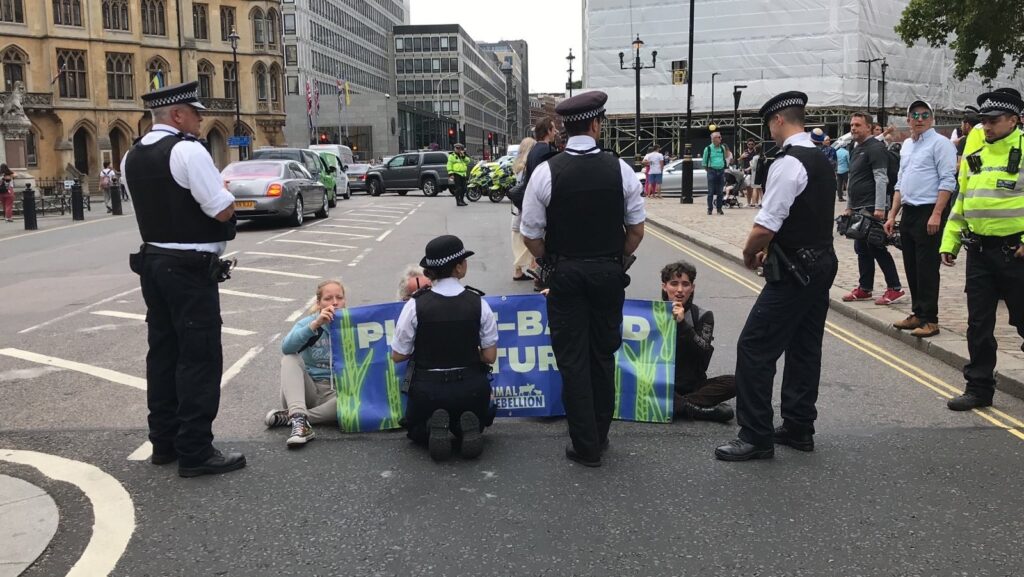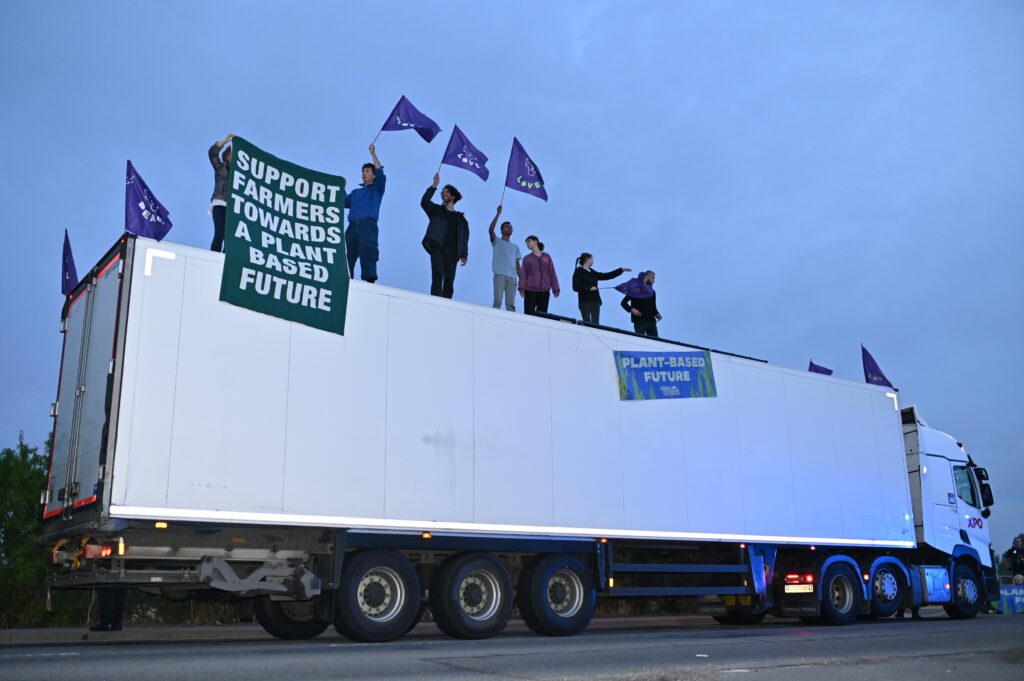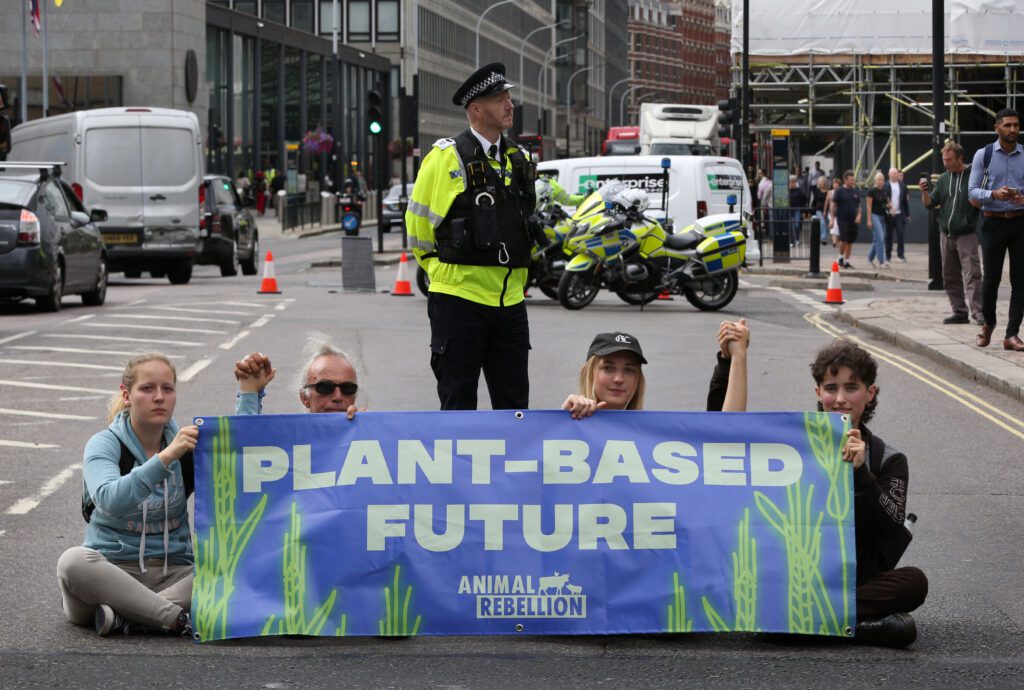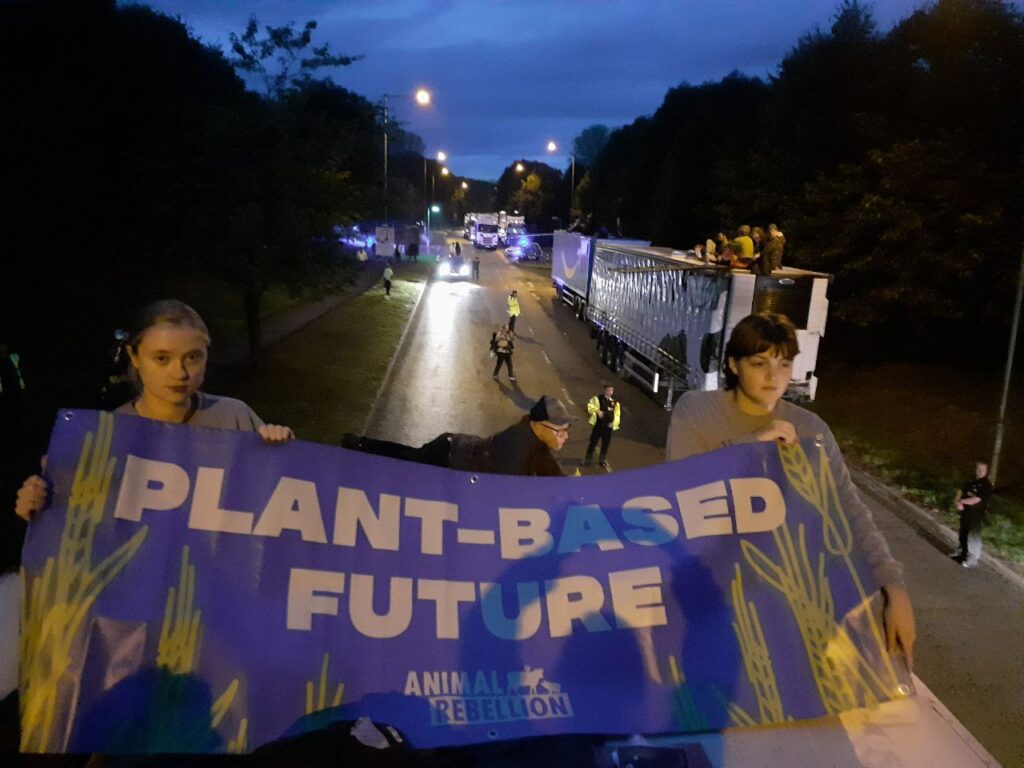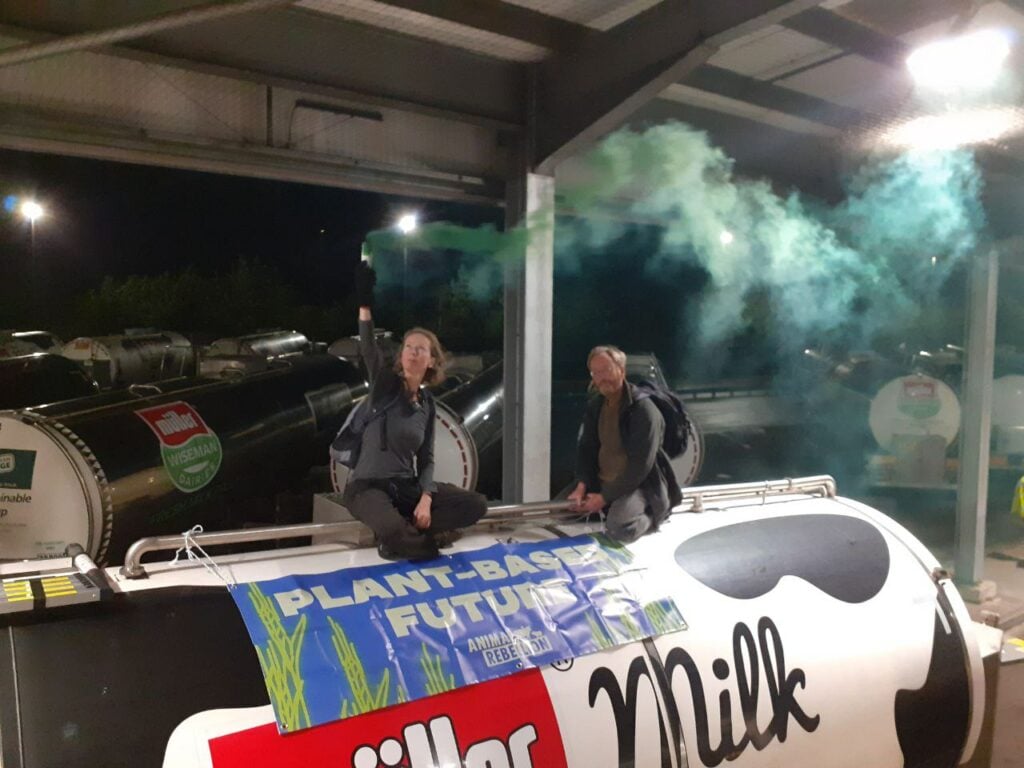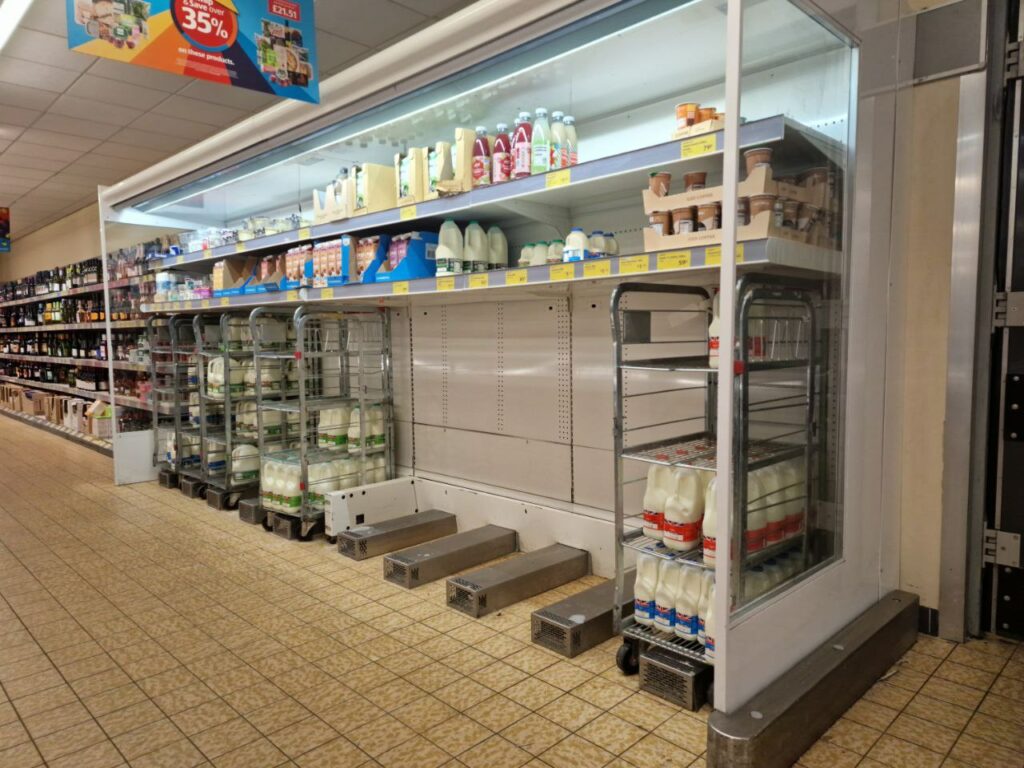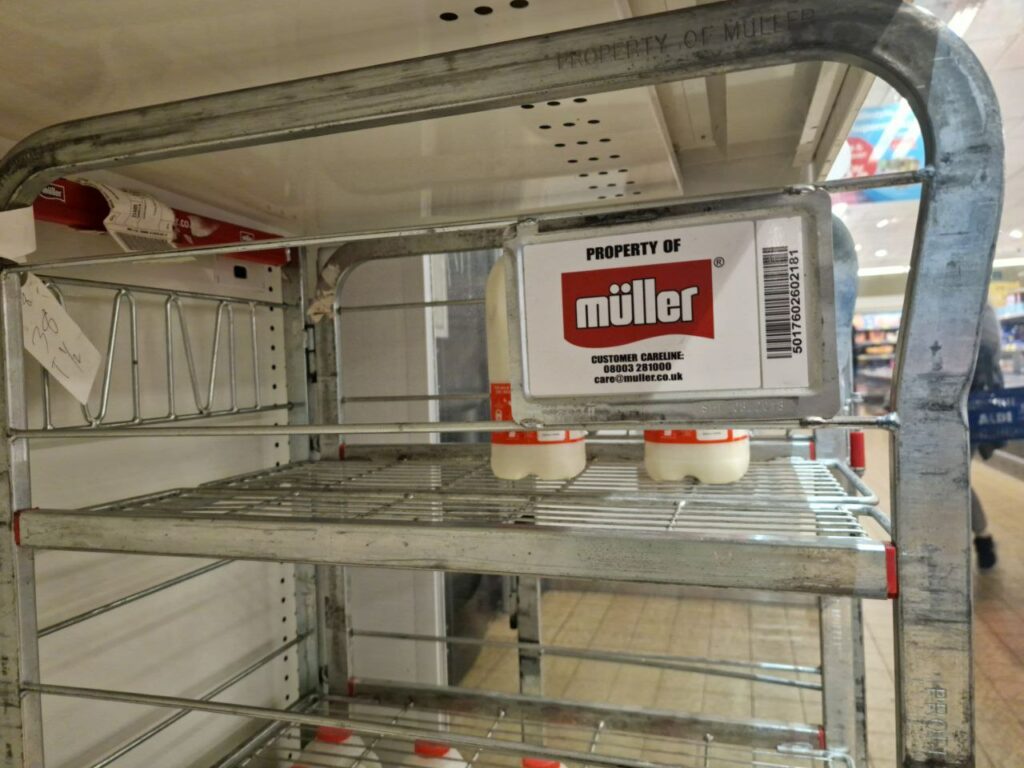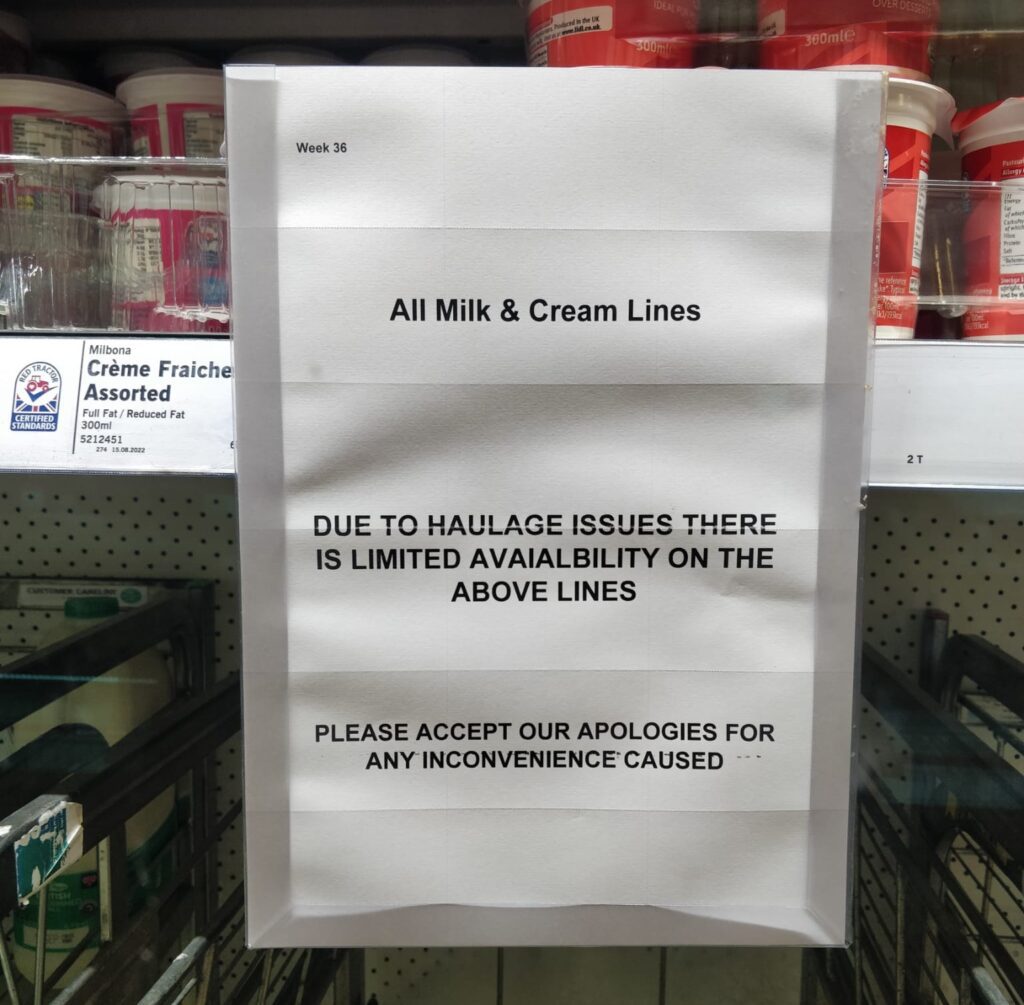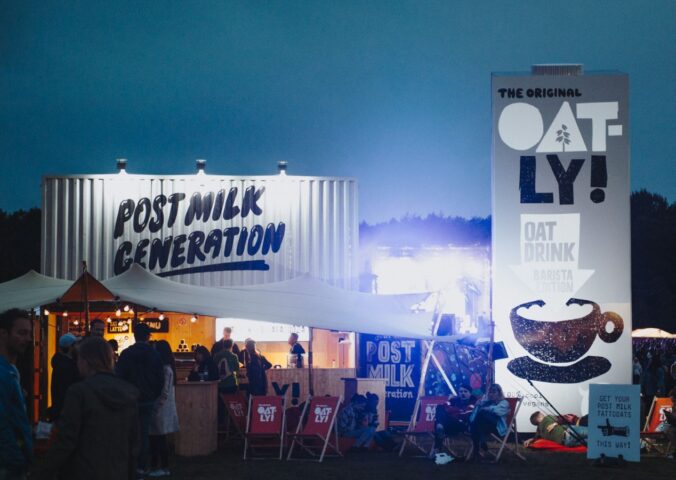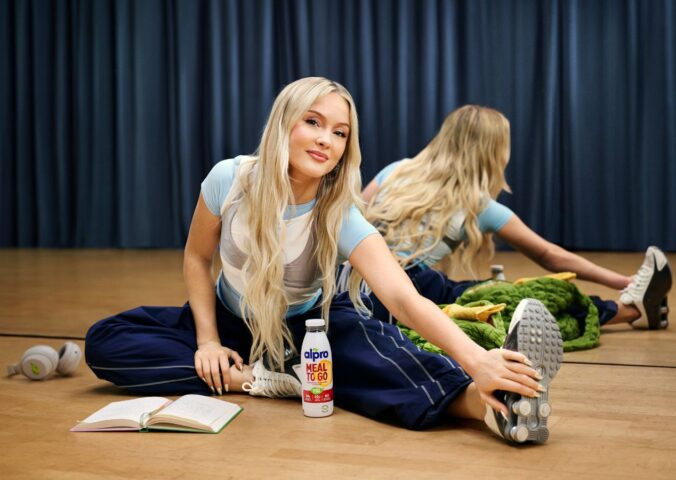Animal Rebellion has said that its “large scale disruption” to the dairy industry will continue until the UK government agrees to its demands.
The Extinction Rebellion-affiliated group began its campaign over the weekend. Activists are using non-violent sit-ins and blockade-style tactics to attempt to clear the supermarket shelves of milk this September.
AR aims to persuade the government to give into two key demands. Firstly, it transitions the country to a plant-based future. Secondly, it subsequently helps to rewild the freed-up land.
Speaking to Plant Based News (PBN) ahead of the campaign, a spokesperson said: “The point of this disruption is that it’s going to be ongoing. We are going to be doing this until the government meets our demands. Disruption is not a brief event, this is the beginning of an escalation that we will continue until a major change is achieved.”
Earlier this year, Animal Rebellion delivered a formal letter to Downing Street outlining its demands. It said that it would “go into full civil resistance mode by disrupting the dairy industry” if they were not met. The government did not respond.
Animal Rebellion’s Plant-Based Future campaign
The current campaign began on Saturday (September 2). Activists staged sit-ins in the dairy aisles of supermarkets in London, Southampton, Birmingham, and Manchester.
Since then, they have been attempting to stop the supply of milk to supermarkets. To do this, activists have climbed on trucks outside four facilities in the Midlands and south of England. They have also trespassed inside company facilities and climbed up onto milk silos and the sites’ loading bays.
The affected distribution centers include Arla’s largest distribution site in Aylesbury, which processes 10 percent of the UK’s dairy produce. Arla has since said that milk shortages in the UK are “inevitable.” Activists also blockaded three sites that supply Müller.
Activist Theresa Higginson, a retail worker who is at the site in Aylesbury, said in a statement: “What you have seen today are actions taken out of love for, and a need to protect, all life.”
“Every individual here is united by a common goal, a better and more just world. I stand by all of our actions. We have no alternative. The government had the chance to respond but failed to do so. We have had a leadership contest where the climate crisis has barely had a mention.”
Animal Rebellion will also be visiting the farming community to speak to farmers about their reasons behind the campaign.
“This is not disruption we will do just by the dead of night,” a spokesperson told PBN. “This is the disruption that’s going to be accountable and that we are going to hold ourselves accountable for.”
Animal agriculture in the environment
Animal agriculture is catastrophic for the environment. It is responsible for at least 14.5 percent of global greenhouse gas emissions.
It’s also an inefficient use of water and crops. Animals require vast amounts of resources that could instead be fed directly to humans. AR states that we would have enough to feed the UK population twice over if we moved to a plant-based system.
Despite the science, and calls from the UK government food tsar, recently-elected Conservative leader and incoming Prime Minister Liz Truss has so far not publicly acknowledged that we need to eat less meat.
Animal Rebellion’s aims
A spokesperson for Animal Rebellion told PBN that, rather than stressing what’s bad about the system, the group plans to demonstrate what could be achieved by transitioning to a plant-based system.
“This campaign is mainly about the opportunity,” they said. “As much as possible, we’re going to be stressing that this is a win-win situation. For farmers, for fishing communities, who can be supported in wanting to get out of a failing industry.”
“It’s a win-win for all of the humans on this planet because we’re going to get a climate that is actually stable, and potentially even cool, if we do rewilding of this scale.”
“And it’s a win-win for all of the other species that we share this planet with. 76 billion animals are slaughtered totally unnecessarily every year, and somehow we’re struggling to feed seven billion humans.”
Response
In a statement confirming that three of its sites have been targeted, a spokesperson for Müller UK and Ireland said: “We are disappointed to be targeted by a small number of activists who don’t represent the 96 percent of adults in Britain who choose milk every week, and we will ensure that supplies are maintained.”
“Dairy is affordable and packed with nutrients that benefit our bodies. During a cost of living crisis, it is wrong to try to prevent it from reaching families, including vulnerable members of society.”
The activists have been met with praise, however, from organizations including the Humane Society International/UK.
Claire Bass, the organization’s executive director, said: “These protests must be a trigger for some critical conversations in government to address the unsustainability of the dairy industry.”
“Cows have been bred and farmed to the edge of their biological limits, with each cow producing 100 percent more milk than yields in 1975. True costs to animal welfare, the environment, and climate are disregarded in order to maintain unrealistically low prices.”
She added that the country needs “urgent” strategies to support growth in the plant-based sector.
